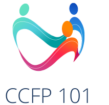The key question, “CCFP vs MD,” often comes to the forefront for those charting a course through the medical field in Canada. Essentially, an MD is a general medical degree allowing specialization in various areas of medicine, while a CCFP—Certified in the College of Family Physicians—is a certification for family physicians in Canada, emphasizing primary care.
With your career ambitions in mind, consider:
- MD offers diverse specializations beyond family medicine.
- CCFP is tailored for a primary care focus within Canada.
Even with this initial guidance, the nuances between the two paths beckon a deeper understanding to make the most informed choice for your professional journey in medicine.
Introduction
Embarking on a career in medicine is a monumental decision, and whether you aspire to be a specialist physician or a family doctor, the educational path you choose will set the tone for your medical journey. In Canada, becoming a physician typically leads to two titles that are often heard together but represent unique qualifications: the MD (Doctor of Medicine) and the CCFP (Certification in the College of Family Physicians). While MD is a widely recognized designation across the globe, CCFP highlights a physician’s certified expertise in family medicine within Canada. In this exploration, we’ll delve into the nuances between these two paths, help demystify the complexities, and support you in making an informed decision about your future in medicine.
Understanding the MD Degree
The Path to an MD
Becoming a medical doctor begins with obtaining an MD degree. This journey starts with a rigorous undergraduate program, typically full of science-driven courses, followed by passing the MCAT and gaining acceptance into a reputable medical school. Over these four years, you’ll split your time between classroom learning and practical clinical experience, covering everything from anatomy to patient care.
After the Degree
Once the MD is in hand, the road forks again as you choose a residency in a specialized field, which can range from internal medicine to neurosurgery. This is where you’ll hone in on your specific medical interests and continue to build practical skills.
MD Specializations:
- Pediatric Medicine
- Obstetrics and Gynecology
- Psychiatry
- Surgery
- and many others
Each of these areas requires a different set of skills and a unique approach to patient care, and the choice you make here will influence your professional life for years to come. If diving deep into a particular aspect of health excites you, then an MD with a specialized residency might be your calling. To properly understand the requirements for graduation which vary by state or province, investigate the standards outlined by medical schools (Stanford University School of Medicine provides a comprehensive example).
Exploring the CCFP Designation
Family Medicine at Its Core
The CCFP represents a pinnacle achievement for family medicine practitioners in Canada. As an MD holder, to earn the CCFP, you must complete a residency focused on comprehensive family care. Unlike specialists who focus on a particular organ system or disease, family physicians are trained to treat a wide variety of health issues across all age groups, affirming their role as cornerstones of healthcare within the community.
Certification Pathway
Securing a CCFP designation involves rigorous post-MD training that further emphasizes the patient-doctor relationship and community medicine. Once training is complete, passing the Certification Examination in Family Medicine ensures you’re equipped to provide the highest standard of care in family medicine.
Family physicians often enjoy the variety of daily challenges, the ability to provide continuity of care, and the opportunity to form lasting connections with patients. If the breadth of general medicine and the idea of being the first point of contact for healthcare appeal to you, the CCFP might just be your path.
Educational Pathways: MD vs CCFP
The choice between an MD and a CCFP ultimately comes down to how you envision your future practice and where your passions lie. Both require an initial foundation in medical education, but diverge significantly in postgraduate training.
The MD Educational Journey
- Bachelor’s degree with a pre-med focus
- Medical College Admission Test (MCAT)
- Four years at an accredited medical school for an MD
- Residency training in chosen specialty (length varies by specialty)
The CCFP Educational Route
- Bachelor’s degree with a pre-med focus
- Medical College Admission Test (MCAT)
- Four years at an accredited medical school for an MD
- Two-year family medicine residency leading to the CCFP
Earning a CCFP signifies that you’ve dedicated additional years to mastering the nuances of family medicine. Compared to the broad MD educational trajectory, the CCFP offers a more focused approach, preparing you for a career that addresses the full spectrum of health issues in patients of all demographics.
Casting a wide net, the CCFP path allows you to be the first line of defense in the healthcare system, while MD specialists dive deeply into specific areas of medicine. Your choice should reflect not only your interests but also the kind of impact you wish to have in the field of healthcare. Whether you find fulfillment in the ever-changing landscape of family medicine or the deep, specialized knowledge of a certain medical field, your education will pave the way for your future success.
Career Opportunities and Scope of Practice
As you weigh the possibilities of CCFP versus MD, consider the breadth of career opportunities that each path unlocks. Your professional journey in medicine can take many shapes, and being aware of what each path entails can help you navigate towards your desired destination.
For MDs, especially those who specialize after obtaining their degree, the career scope is quite specific, often tied to the nature of their specialization. Surgeons, for example, spend much of their time operating, whereas pediatricians focus on the complexities of children’s health. Specialists find positions in hospitals, private practices, research institutions, and academia. Your advanced training equips you to address specific, often complex medical challenges.
In contrast, the CCFP-certified physicians typically engage in a broader scope of practice, managing everything from wellness visits to the management of chronic illnesses. They work in a variety of settings, including family practices, community health centers, hospitals, and urgent care facilities. If you have a passion for holistic medicine and enjoy the variety of treating a full spectrum of conditions, a career in family medicine could be incredibly fulfilling.
Consider the following roles often pursued by CCFP-certified family physicians:
- Primary care provider
- Hospitalist
- Urgent care physician
- Clinical instructor
- Public health advocate
These varied roles within the healthcare landscape offer flexibility and the deep satisfaction of making a tangible difference in your community’s wellbeing. If you find joy in the thought of nurturing long-term relationships with patients and their families, the CCFP path may align seamlessly with your professional ethos.
Licensing and Certification Process
Navigating the licensing and certification landscape is critical as you build your medical career. This process solidifies your status as a reputable and trustworthy practitioner – a beacon of reliability in the health care field.
For MD holders, you’ll undertake board examinations that are specific to the specialty you’ve trained in after completing your residency. Each province or territory in Canada will have slight variations, but the road to becoming a licensed specialist is rigorous, requiring a consistent demonstration of knowledge and skill.
On the other hand, if you’ve chosen the CCFP path, after your residency in family medicine, you’ll need to pass the Certification Examination in Family Medicine, held by the College of Family Physicians of Canada, to practice as a certified family physician. This certification, recognized across Canada, is a testament to your expertise in the field of family medicine.
The certification process may seem daunting, but it’s a rite of passage ensuring that all medical professionals meet the high standards required to care for the public effectively. Whether you pursue an MD or a CCFP, the certification underscores your dedication and competency in your chosen field.
Considerations for International Medical Graduates
If you’re an international medical graduate (IMG), you may have unique challenges and opportunities when considering the “CCFP vs MD” question. Securing recognition for your credentials and possible bridging programs might be on the horizon as you seek to establish your career in Canada.
For IMGs, the paths to practicing medicine in Canada can be complex. You may need extra preparation or to complete postgraduate training within Canada to finish the residency required for CCFP certification or to specialize post-MD. Programs exist to aid IMGs in this transition, and while some provinces offer limited licensure without residency, most will require full completion of Canadian educational standards.
The residency application process, particularly for the CCFP, may be competitive and challenging. A higher failure rate for IMGs on certification exams compared to Canadian graduates highlights the need for comprehensive preparation (source).
Resources such as the Alberta International Medical Graduates Association (AIMGA) can be immensely helpful in guiding you through the process. They offer support systems, advice, and resources that could be invaluable on your journey towards practicing medicine in Canada.
Making the Decision: Which Route Is Right for You?
Deciding between CCFP and MD isn’t merely a choice between two educational paths—it’s a decision about the kind of doctor you want to be and the impact you aim to have on patients’ lives.
When considering CCFP vs MD, ask yourself:
- Do you envision yourself delving deeply into a specific medical specialty or do you have a drive to provide broad, comprehensive care?
- Does the idea of focusing on a narrower field excite you, or do you prefer the diversity of challenges that family medicine presents?
- How important are long-term patient relationships and community health to you?
Your answers will guide you towards the path that not only suits your professional aspirations but also resonates with your personal values and lifestyle considerations. It’s more than choosing a career; it’s about shaping the future contours of your daily professional life.
Conclusion
Deciphering the “CCFP vs MD” conundrum is a nuanced and personal journey, and making an informed decision sets the foundation for a fulfilling career in medicine. Whether you choose the specialized path of an MD or the wide-ranging practice of family medicine with a CCFP certification, each route offers unique rewards and opportunities that can shape your professional identity.
Remember, the road to either designation is rigorous and demanding, but also rich with the promise of growth, learning, and the profound joy of healing. Your choice is about finding harmony between your career ambitions and the kind of difference you want to make in the lives of your patients. May this exploration serve as a compass, guiding you towards the path that resonates most deeply with the physician you aspire to be.
CCFP vs MD: comparing paths in Canadian medicine, explore differences in certification, education, and career opportunities for doctors.

